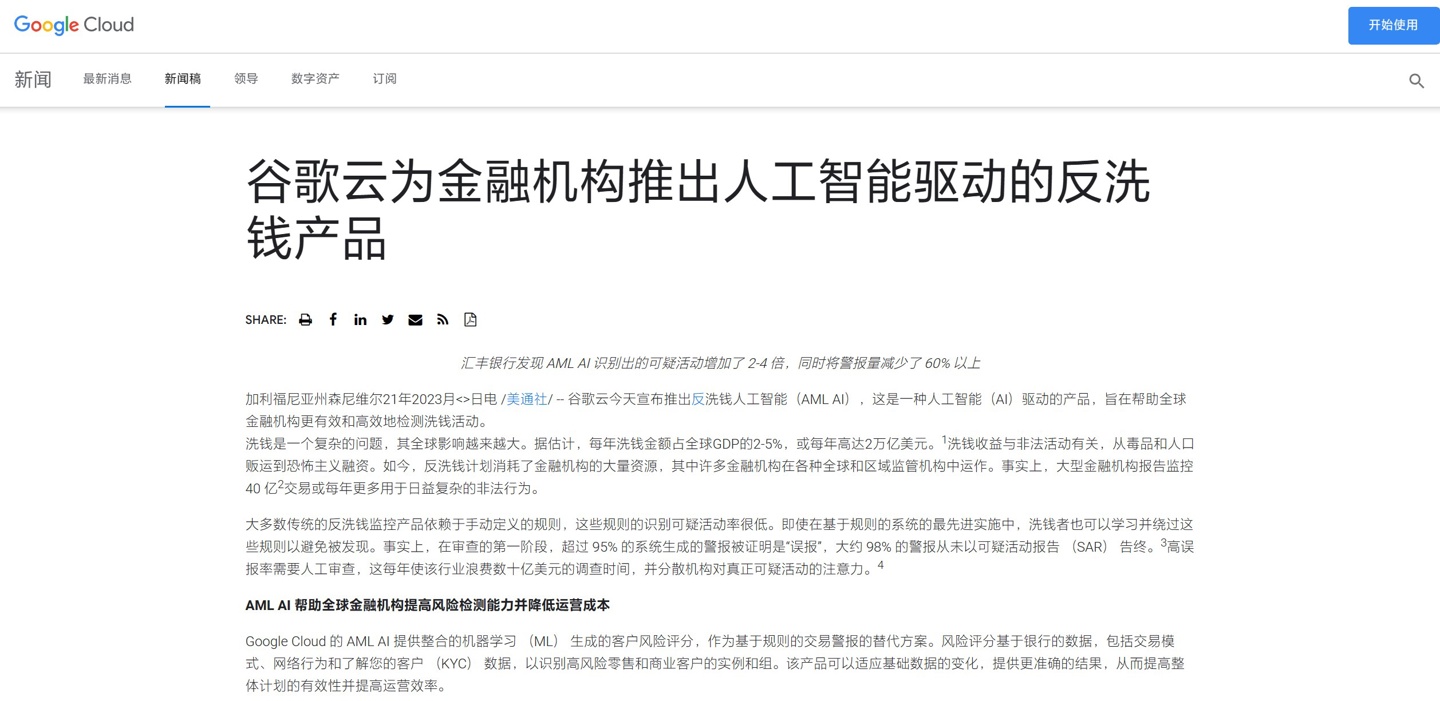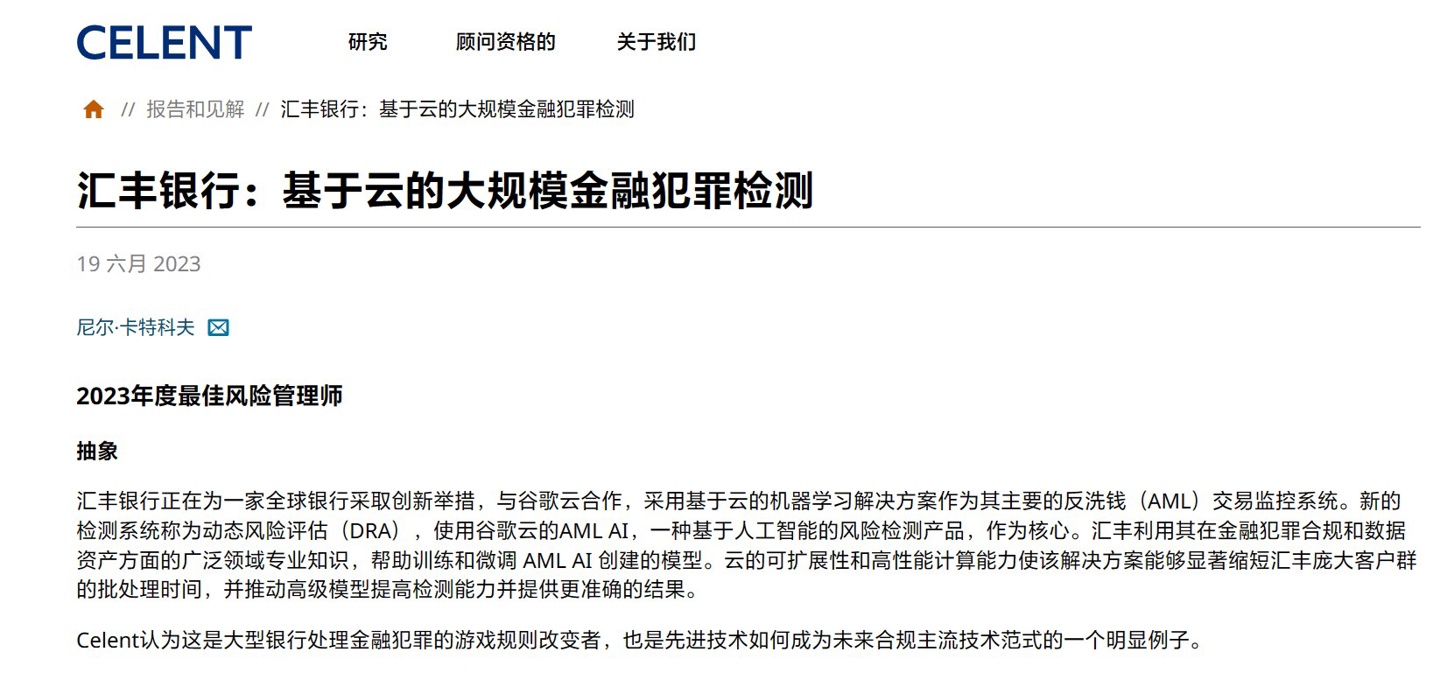Home >Technology peripherals >AI >Google launches AI anti-money laundering tool that can increase the accuracy of internal risk warnings of financial institutions by 2 to 4 times
Google launches AI anti-money laundering tool that can increase the accuracy of internal risk warnings of financial institutions by 2 to 4 times
- WBOYWBOYWBOYWBOYWBOYWBOYWBOYWBOYWBOYWBOYWBOYWBOYWBforward
- 2023-06-27 19:00:171572browse

News on June 27th, Google recently launched an anti-money laundering tool AML AI in conjunction with generative AI, can be used to identify suspicious money laundering behavior in the financial industry, and Generate analysis reports that comply with industry standards.
Google said that the supervision of traditional financial institutions mainly relies on analysts, who need to manually analyze the data disclosed by the company one by one. The error tolerance rate and the personal behavior of analysts often have a certain impact on the analysis results. .
Google stated that during the first stage of review, it would even find that more than 95% of "money laundering reports" were false, and nearly 98% of initial reports would not be blamed in the end. For "money laundering", Google launched this anti-money laundering tool based on generative AI precisely to improve the regulatory efficiency of financial institutions.

this AI tool has been tested by HSBC and can increase the accuracy of internal risk warnings of financial institutions by 2 to 4 times and reduce the false alarm rate. 60% . At present, AML AI tools are expected to enter the formal commercial stage after review, making it easier for financial institutions to conduct internal risk management.

The above is the detailed content of Google launches AI anti-money laundering tool that can increase the accuracy of internal risk warnings of financial institutions by 2 to 4 times. For more information, please follow other related articles on the PHP Chinese website!
Related articles
See more- Technology trends to watch in 2023
- How Artificial Intelligence is Bringing New Everyday Work to Data Center Teams
- Can artificial intelligence or automation solve the problem of low energy efficiency in buildings?
- OpenAI co-founder interviewed by Huang Renxun: GPT-4's reasoning capabilities have not yet reached expectations
- Microsoft's Bing surpasses Google in search traffic thanks to OpenAI technology

